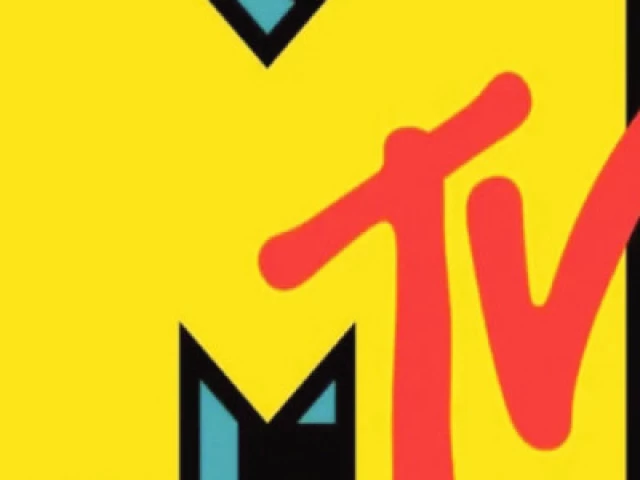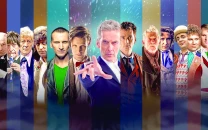The day the music stopped
MTV to pull plug on its music channels by yearend

There was a time when three letters defined the pulse of cool - M-T-V. For generations who grew up between the neon-lit '80s and the streaming-drenched 2000s, MTV wasn't merely a television channel; it was a cultural revolution.
It gave the world Madonna before Instagram, Nirvana before YouTube, and Beyoncé before TikTok. But that chapter is about to close.
By the end of 2025, MTV's remaining music channels - including MTV Music, MTV 80s, MTV 90s, MTV Live, and Club MTV - will go off air across the UK and parts of Europe.
Paramount Global, the network's parent company, has confirmed the shutdown as part of its global restructuring plan. Though MTV HD will continue broadcasting, its focus has long shifted from music videos to reality entertainment like 'Geordie Shore' and 'Teen Mom UK'.
For millions, the move feels like a final farewell to the soundtrack of their youth. Once a shared window into global pop culture, MTV is now bowing out from the very thing that made it iconic - music itself.
Launched in 1981 with the prophetic first video 'Video Killed the Radio Star' by The Buggles, MTV did more than just air songs; it built a generation's identity. Through the '80s and '90s, its bold visuals, irreverent VJs, and countdown shows created a universe where music met rebellion, style met attitude, and youth met itself.
In its heyday, 'Yo! MTV Raps' took hip-hop from New York's boroughs to the world, while 'Headbangers Ball' gave heavy metal a home. The TRL countdown was religion for pop fans, and the MTV Europe Music Awards turned global stages into cultural battlegrounds.
But as the internet reshaped how we consume art, MTV's rhythm began to fade. YouTube, TikTok, and streaming platforms offered instant, on-demand access to music videos - something scheduled television could no longer compete with.
MTV's pivot to reality and celebrity-driven content kept the brand alive, but also eroded its musical soul.
By the mid-2010s, what was once a 24-hour music network had become a home for shows like 'Ex on the Beach' and 'Naked Dating UK'. The music migrated to spin-off channels - MTV 80s, MTV Live, and others - which are now being silenced.
Fans online have reacted with sadness and anger. Some mistook the move for MTV's complete shutdown, while others lamented what they saw as years of corporate neglect.
"It's the corporate-led decline of what was once the coolest brand ever," one fan wrote on X. Another said simply, "MTV lost its soul the day it stopped airing videos."
Former VJ Simone Angel, speaking to the BBC, admitted the closure "breaks her heart," recalling how MTV once united artists and fans in a global musical conversation. It was, she said, "a cultural bridge that made the world smaller, louder, and more connected."
From its European launch in 1987 to the debut of MTV UK in 1997, the brand became synonymous with youth rebellion and artistic discovery. It was where the 'Thriller' video premiered, where Live Aid broadcast history, and where the world met countless icons.
For Britain, its dedicated channels became part of the nation's pop DNA - from Britpop and Spice Girls mania to the club scenes of the early 2000s.Yet, as the world of television fragments and younger audiences turn entirely to digital platforms, Paramount's decision is less a shock and more a reckoning.
The global MTV brand has been steadily consolidating amid streaming competition and corporate mergers - most recently Paramount's ongoing deal with Skydance Media.
While the MTV Video Music Awards will continue to air in the United States, and the brand will persist as a digital and entertainment entity, its original identity - the television platform that made music visual - is effectively ending.
It's hard not to feel a pang of nostalgia. For millions, MTV was the background noise of adolescence: the flicker of a TV at midnight, the excitement of a world premiere, the chaos of the EMAs.
It was the first place many discovered their favourite artists, and where pop culture itself seemed to live and breathe.
The irony is poetic. MTV began with 'Video Killed the Radio Star'; four decades later, it is the internet that has killed the video channel. What remains is a legacy that no algorithm can replicate - one of colour, rebellion, and pure musical joy.
When the final fade to black arrives in December 2025, it won't just mark the end of a channel. It will mark the end of an era - one where music wasn't just streamed, but seen, felt, and shared.
MTV didn't just play the hits. It was the hit. And though the music will keep playing elsewhere, for those who grew up with that bold, block-letter logo glowing from their screens, the silence will be deafening.



















COMMENTS
Comments are moderated and generally will be posted if they are on-topic and not abusive.
For more information, please see our Comments FAQ